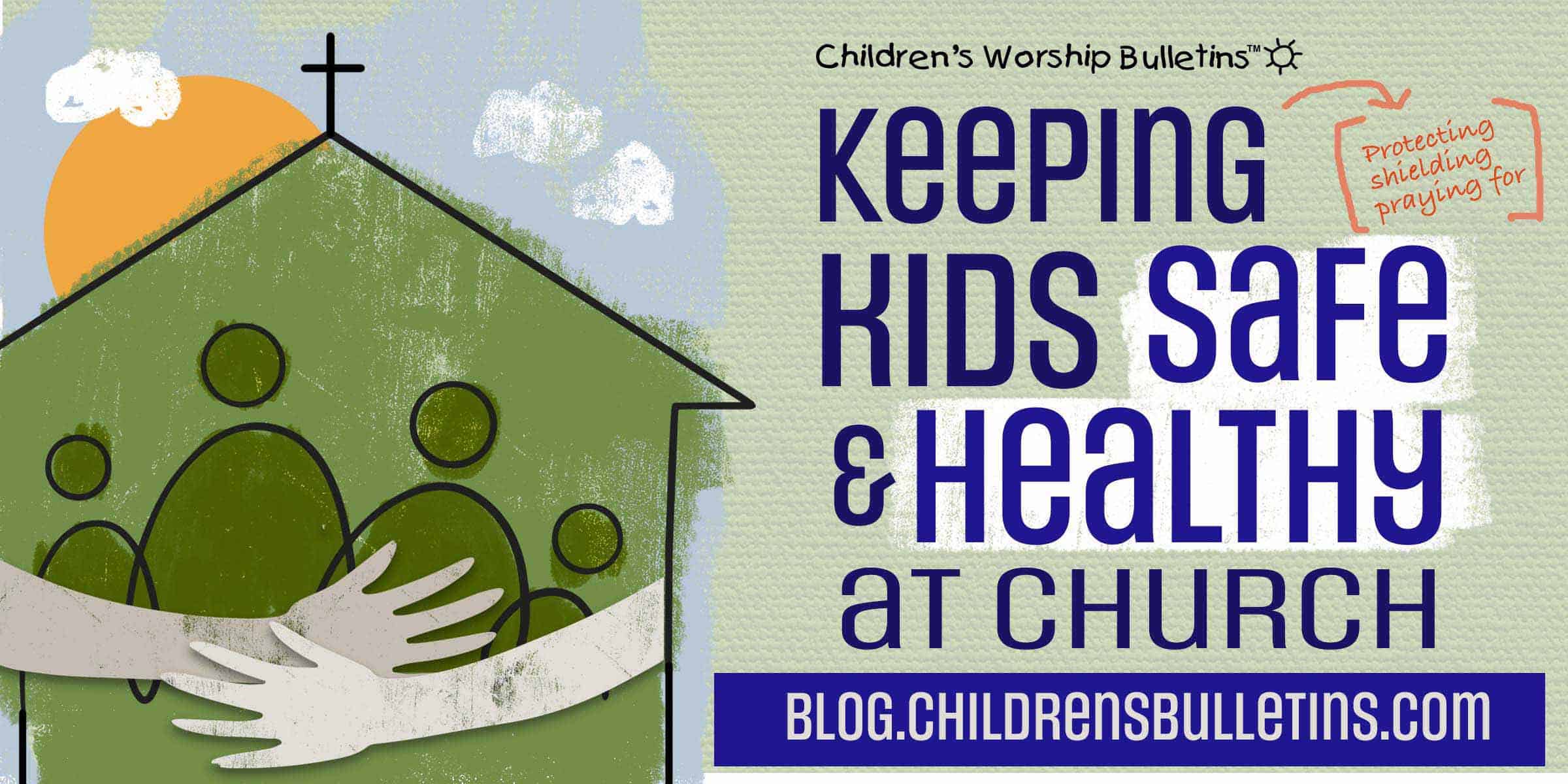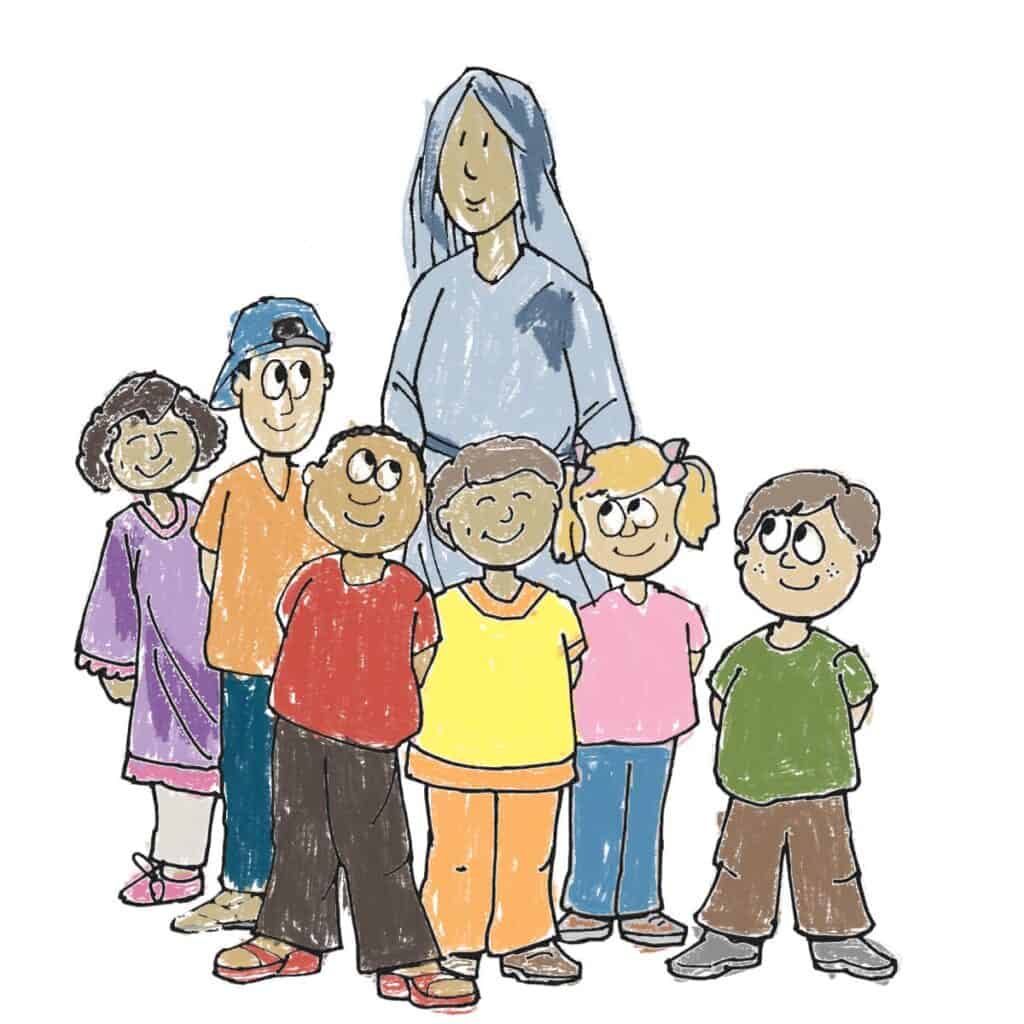Keeping Kids Safe and Healthy at Church: Best Practices for Protecting Little Ones

“Whoever listens to me will live in safety and be at ease, without fear of harm.” Proverbs 1:33
In this busy and often stressful world, we like to view churches as havens of peace and calm. Many dedicated children’s ministry staff members and volunteers work tirelessly to keep it this way. Sadly, church workers sometimes overlook safety issues due to a lack of time, resources, or knowledge.
Although trying to prevent harm can seem overwhelming, it’s extremely important. Nothing matters more than the children entrusted to our care. Yes, creating a child-safety plan requires time and follow-through. But teamwork and step-by-step implementation make the process easier.
Wondering where to start? Use the steps below to protect kids who attend Sunday school classes, children’s worship, and kidmin events at (or through) your church.
9 Ways to Make Your Church Community a Safe Haven for Children
Make sure the entire congregation is aware of these safety measures.
- Start by planning and training.
Gather children’s ministry staff and volunteers for training, discussion, and prayer. Distribute manuals with safety protocols, emergency procedures, health guidelines, and abuse-reporting information. Highlight any areas of concern while acknowledging what your program is already doing well.

- Tap into expertise within your faith community.
Announce the need for volunteers who have special skills and knowledge. A contractor in the congregation may be willing to assess the play equipment for safety. A medical expert can advise on first-aid supplies and injury protocols. A counselor or attorney can explain laws about background checks and mandatory reporting.
- Plan for emergencies and disasters.
Being prepared helps eliminate stress during a crisis. Ask experts from the community to review your emergency plans. Keep extra supplies of water and food handy. Instruct staff how to turn off the water and gas.
The local fire department can identify potential fire hazards, offer fire-extinguisher training, and plan escape routes and meeting points. Depending on your church’s location, also have plans and practice drills for earthquakes, tornadoes, and hurricanes. Pro Tip: Combine disaster drills with an ice cream social or pancake breakfast and add a spiritual message about God’s protection.
Offer regular CPR and first-aid training for staff and volunteers. Keep a well-stocked first-aid kit and updated guidebook in each Sunday school classroom. You may need to lock up certain medications, such as an EpiPen for allergic reactions.
Also train church workers how to respond in case of an intruder or active shooter. Courses are available online, and local law enforcement might assist too.
- Maintain an updated church directory and Sunday school forms.
A current membership directory with family names and phone numbers is vital in case of emergency. On children’s ministry forms, request information about emergency contacts, allergies, and who can (or can’t) sign out kids.
Make sure parents sign in all children when entering the building, so you know who’s present and where. This is crucial if you need to evacuate to a pre-determined location. Keep a paper copy on file in case the electricity, internet, or computers aren’t working. Also, take that along whenever you leave the building with children.
- Keep kids safe on the road.
For excursions or field trips, bring emergency information in case of illness or accident. Make sure each driver has a valid license and insurance. Each vehicle needs functioning seatbelts for all passengers and a first-aid kit.
- Address bullying in church settings.
Sadly, bullying can occur in faith communities. It chips away at the feelings of belonging and safety that we so want to foster. Teach children’s ministry workers what to look for and how to respond to both bullies and victims. For older children and youth, lead a Bible study on the topic. The Bible has examples of bullies plus spiritual guidelines for responding.
- Practice playground safety.
Regularly check the area for anything dangerous, including wet or broken equipment, litter, glass, insect infestations, or unlocked gates. Always supervise the playground when children are present. Adults must pay attention and not be distracted by phones or conversations. Also keep grounds and facilities well-lit and clearly marked.
- Stay current on background checks and mandatory reporting.
All children have a right to feel safe and be safe from abuse. Most states require churches and other organizations to conduct background checks on anyone who works with children and youth. Search online for background-check services in your state. If some volunteers take offense at this step? Simply assure them this is a standard precaution and a legal requirement.

Minimize opportunities for sexual, physical, and emotional abuse by enforcing strict safety policies. For example, don’t allow any adult or teen to be alone with a child. Plan classrooms so they’re open, observable, and easily interrupted. Set bathroom policies for younger children who need assistance.
Church workers are usually considered “mandatory reporters” of child abuse, so tell staff members and volunteers how to report any suspicions. Follow up to make sure that a supervisor or pastor does indeed contact the authorities.
- Practice proper hygiene to prevent the spread of illness.
Keep lots of soap, paper towels, and tissues handy. Show kid-friendly YouTube videos about safe coughing and sneezing habits that minimize germs. Let parents know when they should keep kids at home.
Have children wash their hands before eating and after playing outside. When preparing snacks, take food allergies into account. If kids bring snacks or lunch from home, enforce a “no sharing food” rule.
Physical Safety and Spiritual Security Go Hand in Hand
Amid all the practical steps you take to safeguard children, remember to also seek God’s protection. Pray regularly that he wraps his loving arms around the precious children in your care. Safety is a big job, but our God is bigger than any earthly threat we might face.
Also, remember the true purpose of your ministry: Helping children know Jesus so they stay spiritually safe! In age-appropriate ways, teach students that bad things sometimes happen, but God loves us and is always with us. God will see us through any hardships and struggles we face.
We worship an awesome God, who helps us feel safe and secure. In him, we have amazing hope! Job 11:18 expresses this well: “You will be secure, because there is hope; you will look about you and take your rest in safety.”
God bless and keep safe!
In peace I will lie down and sleep, for you alone, Lord, make me dwell in safety. Psalm 4:8
Author Bio:
Shirley Vaughn
Shirley Vaughn is currently a children's ministry contributor for Communication Resources. She worked as the senior editor for Children's Worship Bulletins for many years but has since mostly retired. Shirley grew up in Australia, where she completed her teacher training, but later moved to the USA with her husband. Being involved in children's ministry and sharing God's love with young ones has been a lifelong commitment. Over the years, Shirley has been deeply involved in Children’s Worship Bulletins, Sunday school teaching, VBS programs, youth ministry, and women's ministry, both in the USA and overseas. She believes that children are a precious heritage from the Lord and finds great joy and purpose in sharing God’s love and hope with them. Now semi-retired, she does freelance work and enjoys spending time with her many grandchildren.
